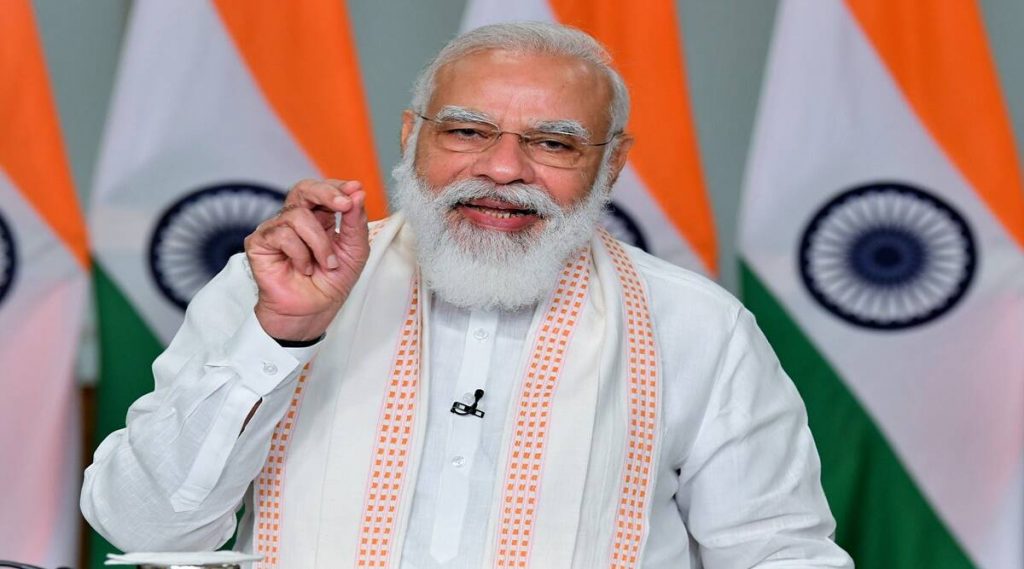NEW DELHI, Sep 11: The prime minister Narendra Modi has described the New Education Policy 2020 as a “means to fulfilling new aspirations and new opportunities of a new India” and said it would give a new direction to 21st century India and the students were becoming part of a moment that would be laying the foundation for building the future of the country.
Addressing the Conclave on “School Education in 21st Century” under the NEP 2020 through video conference on Friday, Modi pointed out that hardly any aspect of the lives of the people had remained the same in the last three decades and yet the country kept following the same three decade old education system.
The Prime Minister said the NEP 2020 was a result of hardwork of people from every region, every sector and every language in the last 3 to 4 years and said he was happy that principals and teachers were enthusiastically participating in the discussion to implement the National Education Policy. Pointing out that over 1.5 million suggestions had been received within a week from teachers across the country on implementing the National Education Policy, he urged the teachers to work together for an effective implementation of the new Policy.
The Prime Minister said it was legitimate that many questions had arisen after the announcement of the Policy and that it was necessary to discuss such issues in such conclaves to move forward.
Modi said energetic youth were the engines of development of a country but that their development should begin from their childhood. He said the education of children, the right environment they get, to a large extent determines what the person would become in his future and what his personality would be. He said the NEP-2020 lays a lot of emphasis on this.
The Prime Minister said that it was in preschool where children begin to understand their senses, their skills better. For this, there was a need for schools and teachers to provide an environment of fun learning, playful learning, activity based learning and discovery based learning to children. He said that as the child progressed, it was very necessary to develop a greater learning spirit, scientific and logical thinking, mathematical thinking and scientific temperament.
In the National Education Policy, The Prime Minister stressed the importance of replacing the old 10 Plus 2 with the system of 5 Plus 3 Plus 3 Plus 4. He said now playful education of the pre-school which was limited to private schools in cities would also reach villages once the new policy was implemented.
He emphasized that focus on basic education was the most important aspect of this policy. Under the NEP 2020, the development of foundational literacy and numeracy would be taken as a national mission. The child should go ahead and read to learn, for that it was necessary that in the beginning he should learn to read. This development journey from learn to read to read to learn will be completed through foundational literacy and numeracy.
He added that when education was linked to the surrounding environment, it had an impact on the whole life of the student and also on the whole society. Mentioning his experience when he was the chief minister of Gujarat, Modi referred to an instance when students from all schools were given the task to identify the oldest tree in the village, and then, write an essay based on that tree and their village. He said this experiment was very successful, on one hand the children got information about the environment, as well as they got a chance to get a lot of information about their village.
The Prime Minister stressed on the need to increase such easy and innovative methods. These experiments should be the core of our new age learning – Engage, Explore, Experience, Express and Excel.
Modi said if the students engage in activities, events, projects according to their interest, they learn to express in a constructive way. He said children should be taken on study tours to historical places, places of interests, to farms, industries etc, as it would give them practical knowledge which was not happening under the old education policy. Similarly by exposing the students to practical knowledge their curiosity would increase and also their knowledge. If students see the skilled professionals then there would be a kind of emotional connection, they would understand the skills and respect them. It was possible that many of these children grow up to join such industries or even if they choose another profession it would remain in their mind of what can be innovated to improve such profession.
The Prime Minister said the NEP had been formulated in such a way that syllabus could be reduced and focused on fundamental things. A National Curriculum Framework would be developed to make learning integrated and interdisciplinary, fun based and complete experience. Suggestions would be taken for this and recommendations and modern education systems of all would be included in it. “The world of the future is going to be quite different from our world today,” he emphasized.
He stressed on the importance of advancing the students with 21st century skills which according to him were – Critical Thinking, Creativity, Collaboration, Curiosity and Communication. He said students should learn coding from the beginning, understand Artificial Intelligence, join Internet of Things, Cloud Computing, Data Science and Robotics. He said the earlier education policy was restrictive but in the real world all subjects were related to each other for which the new policy had given the students freedom to choose any subject.
(Manas Dasgupta)

